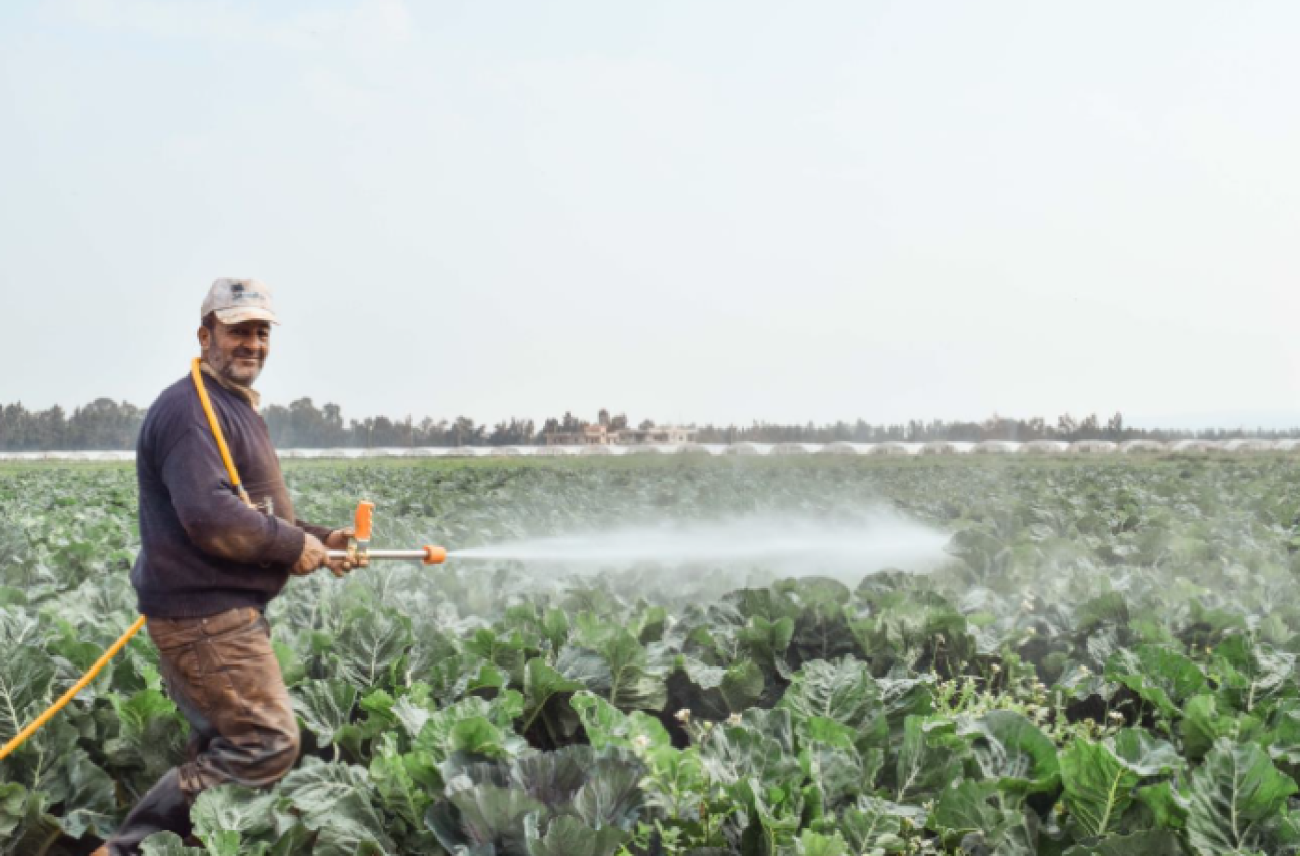Sustain the Environment to Sustain Ourselves

The upgrade of the irrigation infrastructure provides both social and agricultural support for host communities in Lebanon.
Agriculture plays a large role in rural GDP, particularly in Northern Bekaa contributing up to 80% of GDP in some areas. However, the Lebanese agricultural sector is facing many challenges. Climate change is causing water depletion which is leading to an accelerated trend of food insecurity. Farmers still use highly inefficient irrigation techniques and farmlands are irrigated by old canals or open ditches making the depletion of water resources a major threat. Due to existing earthen canals with low irrigation efficiency because of high evaporation and infiltration, many farmers have currently shifted from cultivating fruit trees, to crops that do not require irrigation.
Additionally, due the influx of Syrian refugees, particularly in the rural communities of Northern Bekaa, there has been an increase in water consumption: drinkable water, domestic water, and water for irrigation, which has led to an increase in water demand. Under the scope of its environment program, the UNDP proposed the irrigation project to support in solving this issue. The aim is to allow farmers to be given the possibility of cultivating the widest range of crops by providing adequate irrigation flow to their lands. The solution is to improve the quality of irrigation networks (upgrading infrastructure) to expand access to irrigation water by constructing more canals. The water will then be transported much faster to the lands and won’t be absorbed into the ground. This will result in improvements in agricultural yields, expansion of agricultural lands and ultimately an increase in livelihood opportunities for both Lebanese and Syrian Refugees.
The project is funded by the government of Germany (KFW) in cooperation with the Ministry of environment and water (MEW). The location of the canals is targeted purely and simply where the most vulnerable populations are located. The UNDP has been supporting the national and local level crisis response activities with a focus on the Lebanese host communities. UNDP focuses mainly on catalytic activities that support the stabilization of Lebanon, however, many of the activities that benefit Lebanese host communities, also benefit the refugee populations residing in these communities.
This project is linked to many of the Sustainable Development Goals. It is linked to goal #1: “No poverty”. This project targets the most vulnerable communities, giving them equal access to basic services such as water and food. These communities will thus benefit from these enhanced basic services.
The irrigation project is also linked to goal #8: “Decent work and economic growth”. Irrigation infrastructure for agricultural growth and natural resource management are improved to expand economic opportunities and create jobs. In order to build these canals, hiring staff and workers is of great importance, thus creating more jobs: contractors, engineers, construction workers, etc.. The program plays a very important role in economic growth as well. Agricultural demand is a result of economic growth: when there is economic growth, the purchasing power increases, consumption increases, therefore agricultural demand increases as well, because there is higher demand for food for the population. This also runs vice versa: more agricultural production leads to a decrease in the prices of food leading to an increase of the purchase power which leads to more consumption of the commodity, rendering it more affordable and more inclusive for the population, thus leading to economic growth. Furthermore, there will be an increase of the GDP: innovation leads to higher levels of economic productivity, translating that irrigation leads to higher agricultural production (food production) leading to higher economic productivity. In addition, one of the targets for goal #8 is to improve progressively, through 2030, global resource efficiency in production and endeavor to decouple economic growth from environmental degradation.




